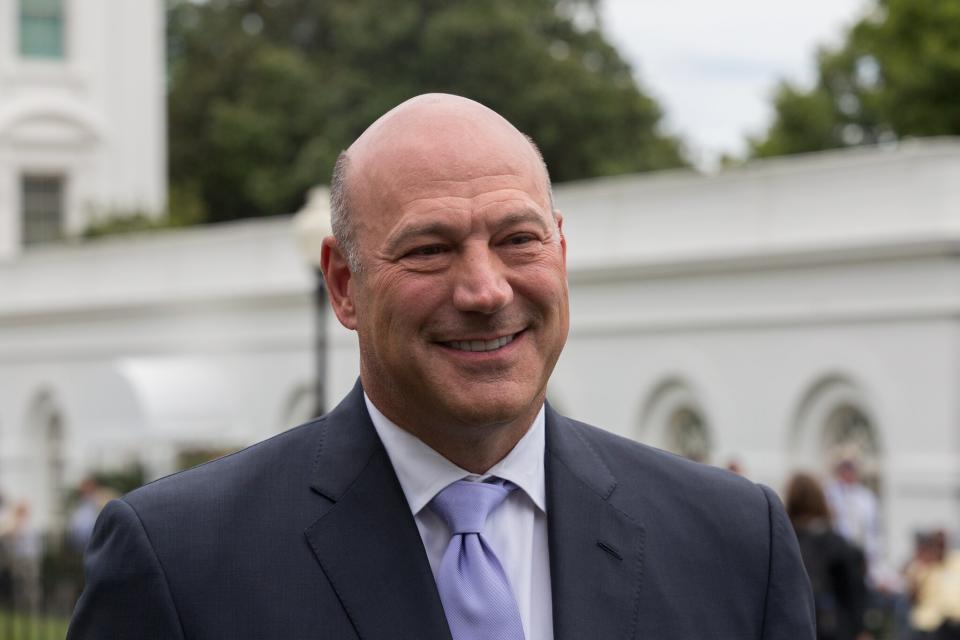Trump's Social Security Cuts Are "Political Suicide," According to Former Top Economic Adviser
Forgive me for rehashing what might be a sore subject for the American public, but Social Security, the country's most important social program, is just 15 years away from a really big problem.
Big benefit cuts are on the horizon
Each and every year, the Social Security Board of Trustees releases its short-term (10-year) and long-term (75-year) outlook for America's top social program. Since 1985, the long-term outlook has shown that there would not be enough revenue coming into the program to sustain payouts at the existing rate (including annual cost-of-living adjustments) over the next 75 years.

Image source: Getty Images.
The latest report, issued in June 2018, forecast that the program would soon hit an unwanted inflection point where more money would begin to be expended than is brought in on a monthly basis. Though the Trustees were wrong in predicting that 2018 would be the year this would happen, their expectation that a net cash outflow would happen soon looks correct, with $9 billion flowing out of asset reserves in the first three months of 2019.
According to the Trustees, Social Security is on pace to completely exhaust its nearly $2.89 trillion in net asset reserves by 2034 -- just 15 years from now. The good news, if there is a silver lining to be plucked from this mess, is that the program doesn't need a dime in asset reserves to remain solvent, thanks to recurring revenue streams that include the 12.4% payroll tax on earned income and the taxation of Social Security benefits. You, your children, and your grandchildren should all receive a Social Security benefit, so long as Congress doesn't change the nature of how the program is funded and assuming every worker earns the 40 lifetime credits needed to receive a retirement benefit.
The bad news is that the complete depletion of the program's asset reserves would lead to an estimated across-the-board cut to benefits for then-current and future generations of beneficiaries of up to 21%. With more than 3 out of 5 retired workers getting at least half of their monthly income from Social Security, this is a problem.

President Trump on the phone in the Oval Office. Image source: Official White House Photo by Joyce N. Boghosian.
President Trump breaks his Social Security promise
With that being said, Congress has been tasked with finding a solution -- and it's not exactly moving at a breakneck pace to do so.
Meanwhile, President Trump has mostly taken a hands-off approach to managing Social Security's issues. This means that, rather than directly amending the program to bring in more revenue or reduce expenditures, he's trying to indirectly increase payroll-tax revenue.
The passage of the Tax Cuts and Jobs Act, which was designed to lower corporate and individual tax liability, is one means of increasing jobs and wages in an effort to boost payroll-tax collection. In 2018, stronger growth does appear to have partially helped Social Security, staving off that aforementioned forecast from the Trustees of a net cash outflow last year. However, this boost looks to be short-lived, with cash freely flowing out of asset reserves since the year began.
But what really caught folks by surprise was the release of Trump's fiscal 2020 budget proposal for the federal government on March 11 (fiscal years begin on October 1). Contained within the president's budget proposal was the call for $26 billion in Social Security cuts over the next decade, $10 billion of which were designed to come from the reduction of retroactive Disability Insurance pay from 12 months to six months.
If you recall, Trump proclaimed that Social Security and Medicare were off-limits during his campaign, so this about-face, even if just on paper via a proposal, was seen as the president breaking his promise.

Former Director of the National Economic Council, Gary Cohn. Image source: Official White House Photo by Evan Walker.
"Political suicide"
Trump's former top economic advisor Gary Cohn views cutting Social Security benefits in any form as "political suicide," according to an interview with Power Up, via The Washington Post. Interestingly enough, this criticism is actually something the president would agree with, based on comments he made at the 2013 Conservative Political Action Conference. Said Trump:
As Republicans, if you think you are going to change very substantially for the worse Medicare, Medicaid and Social Security in any substantial way, and at the same time you think you are going to win elections, it just really is not going to happen... What we have to do and the way solve our problems is to build a great economy.
Cohn's statement, along with the president's from six years ago, brings to light the fact that no matter what is done to directly amend Social Security, someone will always come out worse off than before.
For example, Democrats want to raise additional revenue for the program by increasing or eliminating the earnings tax cap associated with the payroll tax. In 2019, any earned income (i.e., wages or salary) between $0.01 and $132,900 is subject to the 12.4% payroll tax, while earned income above this amount is exempt. By raising or eliminating this cap, it would require the well-to-do to pay more in tax, thereby boosting collected revenue. Of course, with no additional benefits to be received from Social Security, this would mean the rich would be worse off under such a plan.
On the other hand, Republicans often favor gradually increasing the full retirement age, or the age at which you become eligible for 100% of your monthly payout, which is currently set to peak at age 67 in 2022 for those born in 1960 or later. The GOP would like to see this raised to as high as age 70. Doing so would protect current retirees but reduce lifetime payouts to future generations of retirees, thereby saving the program money. It's these future generations of workers who'd suffer under the Republicans' proposal.
Since there's no direct solution without some group of people losing out, especially when it comes to reducing benefits, it's akin to "political suicide."

Image source: Getty Images.
A bipartisan solution is needed... quickly
Nevertheless, something must be done to shore up the program for current and future retirees. Not only does a fix need to be applied, but according to Cohn, there needs to be some expediency to the matter. Cohn notes that he attempted to bring up Social Security reform during tax discussions in 2017 but found little support from the president or members of his own party.
Cohn believes the most logical Social Security fix is going to involve bits and pieces from both parties. For instance, the Democrats' plan of tinkering with the payroll tax cap provides an immediate surge in revenue for the program. That's great news, because raising the full retirement age works very slowly with regard to tackling the program's cash shortfall.
On the other hand, the Republican proposals tend to be more economy-friendly, thereby helping to grow payroll-tax collection. Each party brings something to the table that their opposition doesn't provide.
Furthermore, 60 votes would be needed in the Senate to pass any Social Security amendments, and it's been 40 years since either party held a supermajority of 60 seats. This makes bipartisan cooperation a must if anything is to get done.
Cohn may not be in the political spotlight like he once was, but his more moderate approach to quickly tackle the problem is exactly what Social Security needs.
More From The Motley Fool
The Motley Fool has a disclosure policy.
